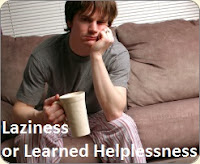How to Effectively Advocating for Your Child with ASD

Being a mother or father of a youngster with ASD or High-Functioning Autism (HFA) can be both exhausting and rewarding at the same time. As the parent, you are responsible for being your child’s advocate. Advocating on behalf of a “special needs” youngster can be both intimidating and daunting; however, armed with just a few simple “advocacy tools,” the parent’s course-of-action can run relatively smoothly. The following “keys to success as an advocate” will show how you can become an effective activist for your child: 1. Make sure you understand all the assessments and evaluations that are going to be – or have been – conducted concerning your youngster. Always request clarification before consenting to evaluations or when reviewing test results. Ask questions such as, "who, what, where, when, why and when" …and then listen carefully to the answers you receive. Research relevant questions, and then document responses instead of simply relying on your memory. Learn

